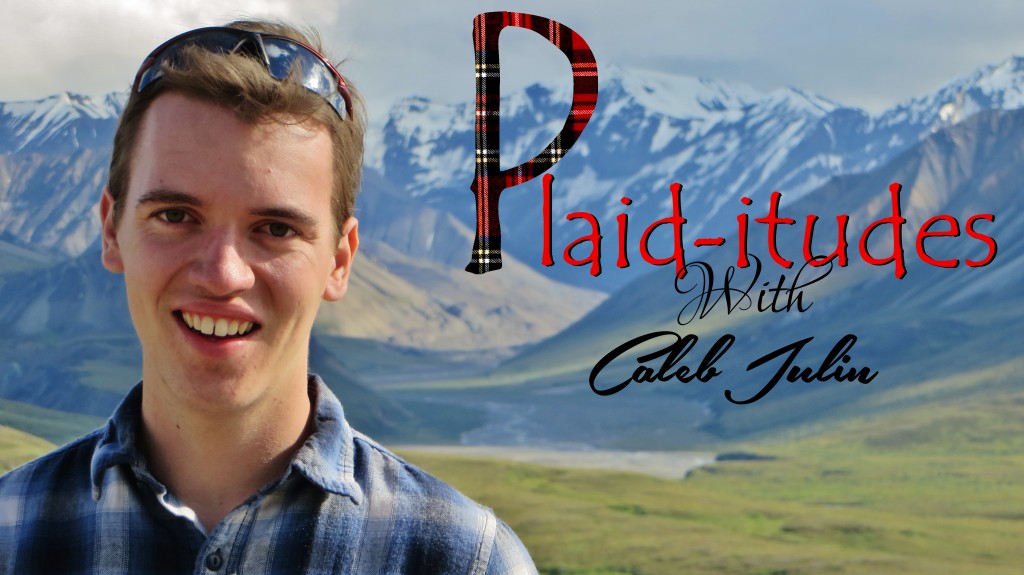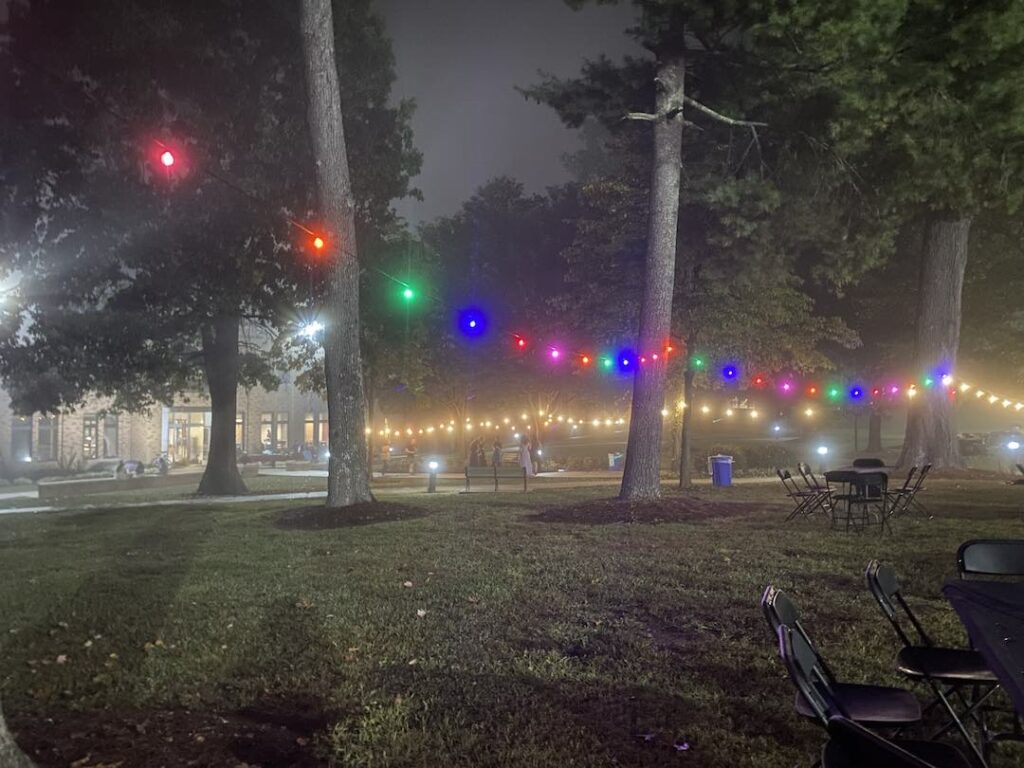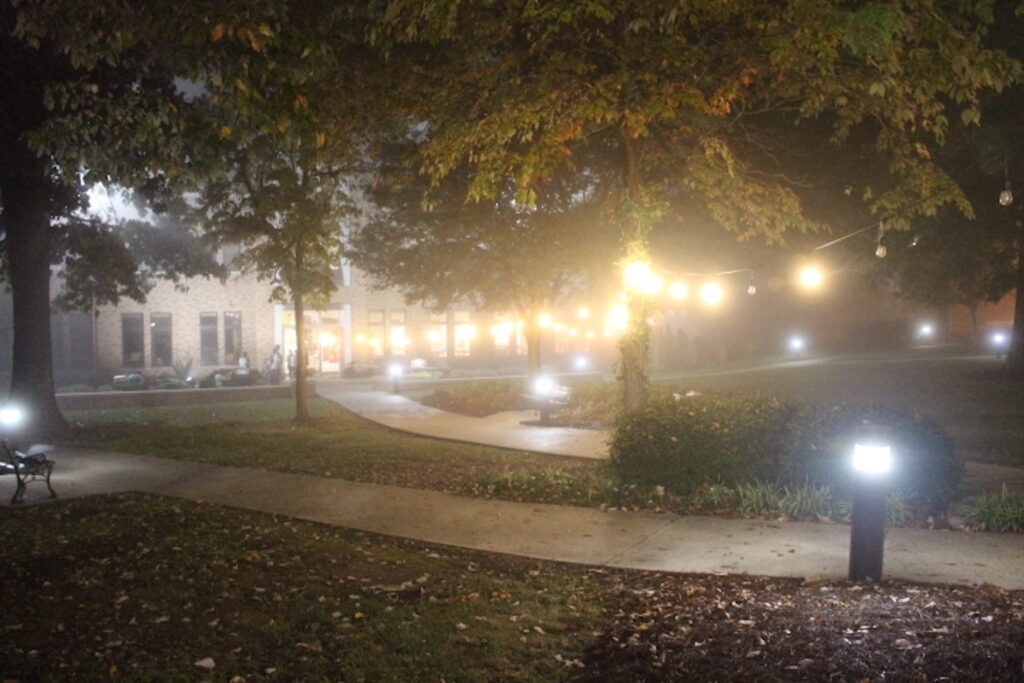You might have seen in the news the other day that Jan. 27 was the 70th anniversary of the liberation of prisoners from the Auschwitz prison camp in 1945. Browsing through the pictures taken from that dreadful camp, one cannot help but wonder why God could possibly have allowed such a thing to exist.
The horrors of Auschwitz beg the question of the problem of evil.
In recent months, I have started seeing the problem of evil in a different light than I ever have before. To be perfectly honest, this paradigm shift did not stem from reading my Bible, but from “The Hobbit.”
One of the things that makes “The Lord of the Rings” so beautiful to me is the sheer amount of symbolism contained in its pages.
Kurt Bruner said in his book, “Finding God in The Lord of the Rings,” “the transcendent truths of Christianity bubble up throughout this story, baptizing our imaginations with realities better experienced than studied…. Tolkien’s myth and fantasy can open the heart’s back door when the front door is locked.”
As I was thinking about “The Hobbit,” I realized that the Shire is an awful lot like the Garden of Eden. However, it is only when our friendly hobbits travel from the Shire into the big, dark world of Middle Earth that they find out true lessons in friendship, life, love and pain.
“In a hole in the ground there lived a hobbit. Not a nasty, dirty, wet hole, filled with the ends of worms and an oozy smell, nor yet a dry, bare, sandy hole with nothing in it to sit down on or to eat: it was a hobbit-hole, and that means comfort,” Tolkien wrote.
Even from the very first words of “The Hobbit,” Tolkien began to paint a utopian picture of the Shire for us. It is a place with doors shaped like perfect circles where all of the residents enjoy seven daily meals, the grass “was very green” and smoking a pipe was considered an acceptable pastime. One thing we learn very quickly is that hobbits are not the adventurous type (But who can blame them when they live in such a perfect place?).
The story begins when a wizard named Gandalf solicits a hobbit named Bilbo Baggins to accompany him on an adventure. In what is perhaps my favorite quote of the book, Bilbo tells Gandalf emphatically, “We are plain quiet folk and have no use for adventures. Nasty disturbing uncomfortable things! Make you late for dinner!” Despite his initial hesitation, however, Bilbo winds up on the adventure of a lifetime.
During their adventures, the hobbits not only witness the darkness and evil in the world, but frequently meet it face-to-face.
Their adventures transport them to places starkly different from the tranquil Shire that they had grown accustomed to, and they awaken to a world of suffering and pain.
However it is through that suffering that they learn the valuable lessons of true friendship and love.
In “The Fellowship of the Ring,” Samwise Gamgee, the ever-faithful companion to Mr. Frodo Baggins, says, “I know we are going to take a very long road, into darkness; but I know I can’t turn back. It isn’t right to see Elves now, nor dragons, nor mountains, that I want—I don’t rightly know what I want: but I have something to do before the end, and it lies ahead, not in the Shire. I must see it through, sir, if you understand me.”
Had they stayed in the Shire, life would have remained simple and nearly effortless, but they never would have known the truths that they learned by experiencing the gritty portions of life together.
In the same way, how would we as humans know what true love is without being the subjects of both love and pain?
John 15:13 says, “Greater love has no one than this: to lay down one’s life for one’s friends” (NIV).
While it does not justify our sin in The Garden, it was only through the need of a savior that mankind could experience the greatest love. While we may have been capable of love prior to the fall, we never would have known how far love could reach without Christ’s sacrifice.
“This is love: not that we loved God, but that he loved us and sent his Son as an atoning sacrifice for our sins” (1 John 4:10, NIV).
It is undeniable that hardship builds character. Indeed, even Gandalf notices the change in Bilbo Baggins at the end of his adventure.
“‘My dear Bilbo,’ he said. ‘Something is the matter with you! You are not the same hobbit that you were.’”
Trials fertilize the soul, growing a person much faster than ever imaginable.
1 Peter 1:6-8 says, “In all this you greatly rejoice, though now for a little while you may have had to suffer grief in all kinds of trials. These have come so that the proven genuineness of your faith—of greater worth than gold, which perishes even though refined by fire—may result in praise, glory and honor when Jesus Christ is revealed” (NIV).
It is only by trials that our flaws can be expunged, leaving nothing but pure gold.
A perfect world is a world without danger, and a world without danger is a world without risk. If there is no risk, then how can a person experience the simple joy and excitement that comes from riding a sled down a hill freshly blanketed with snow? The very fact that there is risk, or at least the illusion of it, is the very thing that makes it fun.
In the same way, the Shire is a community with absolutely no danger whatsoever, but if the hobbits had never left it, then they never would have known the fun of riding a barrel down-stream, the wonderful taste of Elven bread, or the exhilaration of soaring on the wings of eagles.
While the Shire may be the safe life, the safe life is not the exciting life.
Granted, we as Christians should not place our entire focus on fun and excitement, but rather look forward to a perfect world. However, due to our fallen nature, our understanding of the world has expanded in a way that it could not have, had we not left the garden.
There is a reason that Adam and Eve ate of The Tree of the Knowledge of Good and Evil, not good or evil. Without an understanding of evil, you cannot truly have a complete understanding of good.
Though I may not understand how some people can do evil things, a world with evil and pain in it is also a world ripe for God’s love, and through God’s love we ourselves can learn what love actually is.
Mankind is given the choice between living the comfortable life, or taking the difficult path and learning about life and love. The journey is certainly not an easy one, but adventure rarely is.
We have chosen to leave our Shire for a time, but our story is like Bilbo’s, for we were there and we are going back again, except this time with a little more experience under our belts. So next time you find yourself wondering how evil can exist, remember the adventure thus far and all the lessons learned because of it, and remember this quote from Sam in “The Two Towers”:
“It’s like in the great stories, Mr. Frodo. The ones that really mattered. Full of darkness and danger they were. And sometimes you didn’t want to know the end…because how could the end be happy? How could the world go back to the way it was when so much bad had happened? But in the end, it’s only a passing thing…this shadow. Even darkness must pass.”




